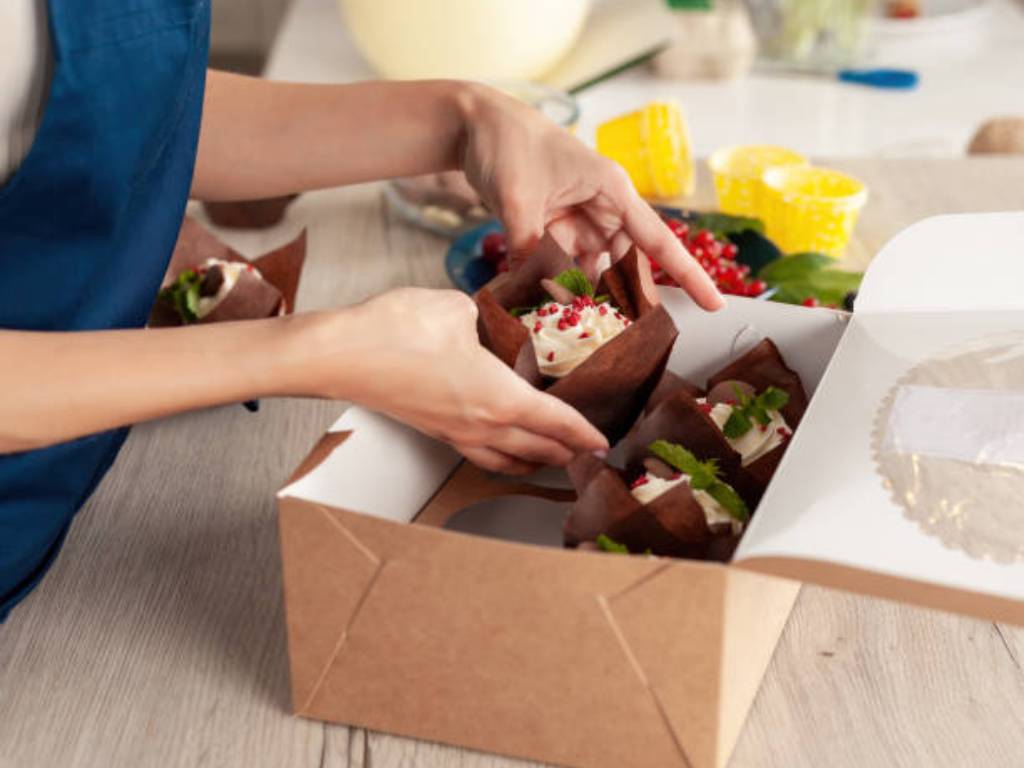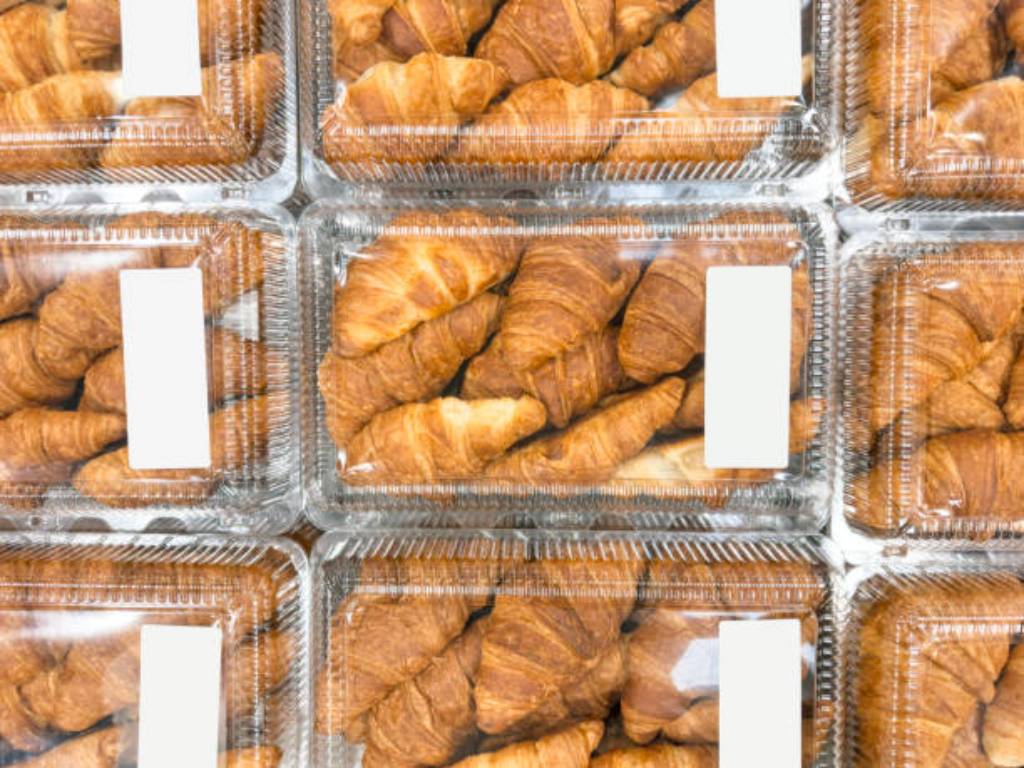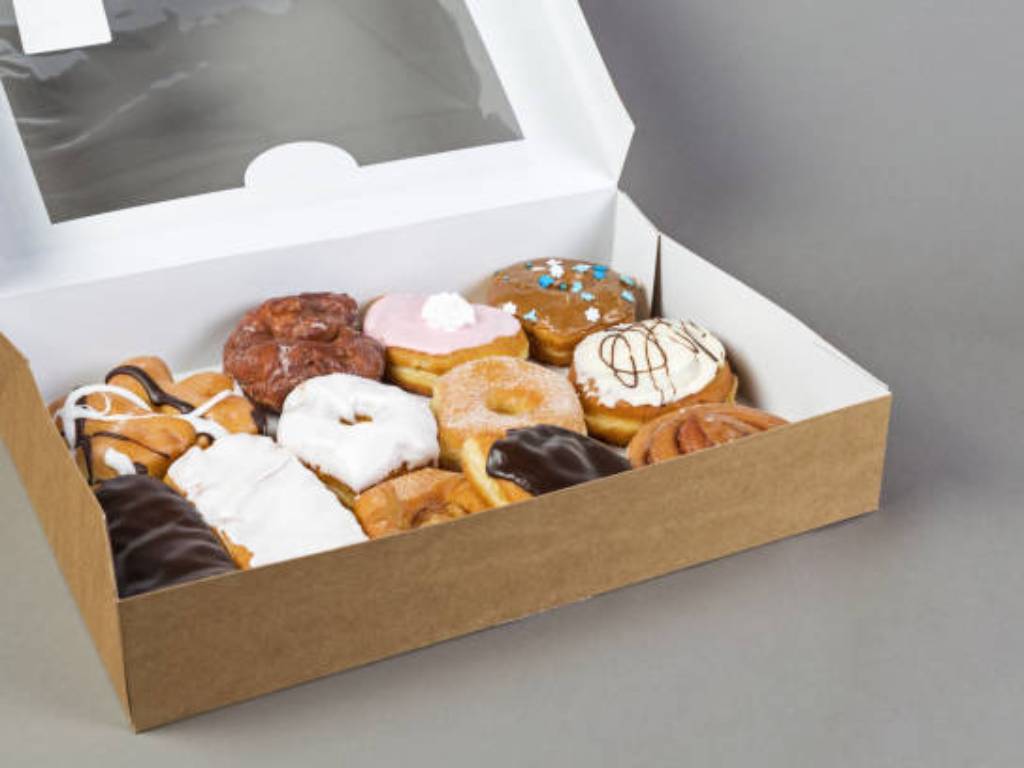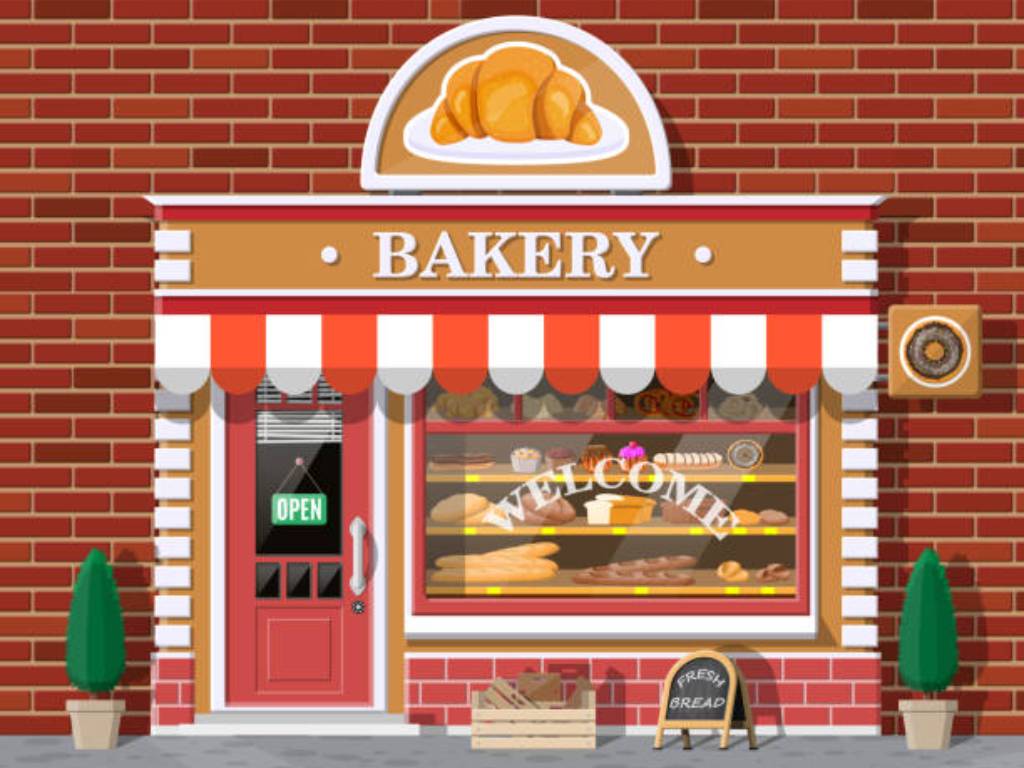The integration of eco-friendly bakery packaging is swiftly becoming a transformative force within the baking industry. It is quite remarkable to observe how a nuanced alteration in packaging materials can substantially influence consumer perception and reshape prevailing market trends. For example, a notable 60% of consumers now exhibit a preference for allocating additional financial resources towards products that demonstrate an environmental consciousness. This paradigm shift presents a substantial opportunity for forward-thinking bakeries.

The Environmental Impact of Traditional Bakery Packaging
Conventional bakery packaging frequently employs plastics, materials that pose significant challenges to our environmental health. Delving deeper, consider a typical plastic bakery container, which may require in excess of 400 years to fully decompose. This protracted duration is concerning, particularly when considering the potential harm these materials can inflict on flora and fauna during their tenure in landfills.
Contrastingly, consider a bakery box crafted from natural kraft. This material, notable for its ability to disintegrate within mere months, is predominantly produced from recycled paper. This not only facilitates the conservation of our forests by reducing the need for virgin tree pulp but also represents a substantial stride towards environmental sustainability. Such a transition in material choice can yield significant ecological benefits.

Indeed, the adoption of eco-friendly packaging solutions, such as natural kraft or other compostable materials, extends beyond mere packaging. It plays a pivotal role in diminishing pollution levels, thereby contributing to the purification of our air and water resources. For consumers, the knowledge that their preferred bakery opts for green packaging solutions is often a substantial incentive. It imparts a sense of responsibility and satisfaction, knowing they are patronizing a business that is actively engaged in environmental preservation. This exemplifies how seemingly minor alterations in packaging choices, particularly in food packaging, can exert profound impacts on both our ecosystem and consumer behavior.
Types of Eco Friendly Bakery Packaging Materials
Eco-friendly bakery packaging materials not only confer significant benefits to our ecosystem but also possess an array of impressive attributes. Let us delve into a detailed exploration of some exemplary materials:
- Sugarcane Fiber: This innovative material, derived from the fibrous residue of the sugarcane milling process, offers a commendable example of industrial byproduct utilization. Exhibiting robustness and durability, these fibers are ideally suited for encasing a diverse array of bakery products. A salient feature of sugarcane-based packaging is its complete compostability. Post-usage, it can be transformed into nutrient-rich compost, which fosters the growth of new flora, thereby substantially diminishing landfill accumulation.
- Natural Kraft Paper: Crafted from wood pulp, natural kraft paper is renowned for its structural integrity and enduring nature. Bakery containers fashioned from this material provide robust protection for delicate pastries and bread, ensuring their integrity during transportation. Moreover, the aesthetic appeal of kraft paper, with its simplistic and rustic charm, resonates well with a broad consumer base. Its recyclable and biodegradable qualities further underscore its environmental efficacy, contributing to waste reduction efforts.
Both materials exemplify the dual benefits of eco-friendly packaging: they not only facilitate environmental conservation but also deliver practicality and aesthetic appeal. By opting for such materials, bakeries can significantly reduce their ecological footprint while ensuring their products are transported safely and presented in a visually appealing manner.
Advantages of Switching to Eco Friendly Packaging
Embracing eco-friendly packaging solutions, including options like sugarcane and natural kraft paper, offers a plethora of benefits for bakeries, augmenting both operational efficiency and brand image.
Sugarcane-based packaging, distinguished by its superior moisture resistance, is exceptionally well-suited for maintaining the freshness of various bakery items, particularly those with high moisture content like cakes and pastries. This attribute is crucial for bakeries that provide supplies to cafes and restaurants or engage in catering services. Additionally, the sleek and professional appearance of sugarcane containers can be customized with brand-specific designs, imparting a personal touch to the products. This customization can significantly enhance brand recognition and foster customer loyalty. Furthermore, the compostable nature of these containers resonates with environmentally aware consumers, potentially expanding your customer base and augmenting sales. Such packaging is ideal for products like cupcakes, with specialized sugarcane cupcake liners and baking cups available, which elevate both the presentation and the sustainability quotient.

Conversely, natural kraft paper, renowned for its robustness, offers remarkable resistance to tears and punctures, thereby ensuring the secure shipping and delivery of bakery goods. This strength is particularly advantageous for bakery containers and deli paper utilized in the packaging of various items, ranging from sandwiches and pastries to iced coffee. The natural and rustic aesthetic of kraft bakery bags can significantly enhance the perceived quality of your products, possibly allowing for a higher pricing strategy. The recyclability and biodegradability of kraft paper play a pivotal role in reducing the environmental impact of the bakery, aligning seamlessly with corporate social responsibility initiatives. These packaging solutions are exceptionally suitable for bakery items typically sold by weight (ounces) and are extensively employed in delis and cafes, complementing an array of restaurant supplies.
Integrating these eco-friendly packaging alternatives into your bakery’s strategy, from deli containers to cupcake liners, not only exemplifies a dedication to sustainability through composting and recycling practices but also addresses a burgeoning market trend that prioritizes environmental stewardship. This approach adds a valuable and profitable dimension to your bakery business.
Comparison Between Traditional and Eco-Friendly Bakery Packaging
| Factor | Traditional Packaging | Eco-Friendly Packaging |
| Initial Cost Per Unit | Lower cost (e.g., $0.05 per unit) | Higher cost (e.g., $0.10 per unit) |
| Durability | Moderate (risk of damage during transit) | High (more robust, offering better protection) |
| Environmental Impact | High (non-biodegradable, contributes to pollution) | Low (biodegradable, compostable, less pollution) |
| Consumer Appeal | Lower (due to increasing environmental concerns) | Higher (aligns with growing eco-consciousness) |
| Brand Image | Neutral/Negative (seen as less environmentally responsible) | Positive (seen as environmentally and socially responsible) |
| Long-Term Cost Savings | Lower (potential for fines, environmental levies) | Higher (reduces waste, potential tax incentives) |
| Customer Loyalty | Lower (especially among eco-conscious consumers) | Higher (can attract and retain environmentally conscious customers) |
Related Post: Which Material is Better for Bakery Packaging, Paper or Plastic?
How to Run Your Bakery Business Successfully With Eco Friendly Packaging?

- Quality and Durability: Prioritize the selection of premium-grade, resilient paper packaging. It is imperative that the packaging possesses sufficient strength to securely encase baked goods, eliminating the risk of rupture, a consideration of utmost importance for weightier items. Ensuring optimal quality is pivotal in guaranteeing that your products are delivered to customers in impeccable condition.
- Freshness and Protection: Opt for paper packaging solutions that are instrumental in preserving the freshness of your baked goods. Varieties such as lined or coated paper are exemplary choices for products prone to releasing moisture or oil. These options effectively prevent the onset of sogginess, thereby maintaining the taste and texture of your items at their peak.
- Custom Branding: Leverage your packaging as a tool to amplify your brand identity. Tailoring your paper packaging with distinctive branding elements, such as your bakery’s logo, color scheme, and other unique motifs, ensures your products are immediately identifiable. This strategy transforms every purchase into a potent marketing opportunity.
- Environmental Messaging: Integrate communications regarding the eco-friendliness of your packaging directly onto the packaging itself. Enlightening customers about the sustainable nature of the paper, including its recyclability or compostability, can significantly elevate your bakery’s reputation as a steward of environmental responsibility. Additionally, this approach serves an educational purpose, raising customer awareness about sustainable practices.
Related Post: Essential Tips on How to Start a Baking Business Successfully
How Can Eco Friendly Packaging Improve Business Branding?
Let us examine the empirical narrative of ‘GreenBake Bakery’, which astutely realigned its operations to incorporate sustainable packaging solutions. GreenBake crystallized its commitment to environmental responsibility by phasing out traditional, non-biodegradable packaging in favor of ecologically sound alternatives like unbleached kraft paper and biodegradable composites.
Antecedent to the Strategic Shift: Prior to their green transition, GreenBake Bakery had cultivated a reputation for quality confections. However, business growth had reached a stasis, impeded by the inability to resonate with a burgeoning segment of environmentally discerning, youthful patrons.
Inauguration of the Eco-Centric Packaging Initiative: The bakery executed a pioneering overhaul of their packaging, deploying unbleached kraft paper constructs for their variety of pastry offerings and biodegradable bagasse receptacles for cake-centric products. This was adroitly executed with the seamless incorporation of their distinctive branding elements, enhancing the aesthetic coherence of their product presentation.
Consequences of the Sustainable Packaging Endeavor:
- Consumer Reception: The transition to eco-friendly packaging amassed laudatory responses, especially from the millennial and Gen Z demographics who extolled GreenBake’s environmental fidelity. This fervent advocacy proliferated across social platforms, invariably elevating the bakery’s publicity and expanding its influence.
- Redefining Brand Essence: The conspicuous shift to green practices became emblematic of GreenBake’s identity, redefining the establishment not solely as a confectionery artisan but as a vanguard of ecological integrity.
- Expansion in Revenue and Strategic Positioning: Subsequent to the packaging overhaul, there was a tangible escalation in fiscal turnover. GreenBake’s commitment to the environment magnetized a clientele that esteemed green values, thereby solidifying its standing, notably in markets where environmental conscientiousness is at a premium.
GreenBake Bakery’s narrative elucidates the profound impact sustainable packaging can exert on a business’s brand. This paradigm shift, transcending operational reformation, has the potential to intensify a business’s brand allure, harmonize with contemporary consumer ethics, and stimulate growth in both revenue and competitive stature.
Reliable Paper Bakery Packaging Boxes and Bags Supplier – Yoonpak

Yoonpak has epitomized excellence in eco-conscious bakery packaging, pioneering the integration of avant-garde biomaterials such as Polylactic Acid (PLA) and processed sugarcane byproducts. Their PLA containers, meticulously crafted from renewable agro-based constituents like cornstarch, provide a commendable biodegradable option that steadfastly maintains structural integrity and product excellence. In concert with these initiatives, Yoonpak’s sugarcane-derived packages proffer an infallible, compostable vessel, capable of complete biological decomposition, thus catering to the rigorous expectations of an ever-growing eco-savvy demographic.
It is pertinent to acknowledge that all offerings from Yoonpak are manufactured within stringent compliance with international environmental and qualitative benchmarks, showcasing esteemed ISO certifications and BSCI accreditation. This unwavering dedication assures that Yoonpak is not merely supplying sustainable packaging, but is actively redefining the paradigm by which the industry approaches ecological viability. For forward-thinking patisseries dedicated to upholding environmental stewardship whilst capturing the patronage of environmentally astute clients, Yoonpak presents an unparalleled alliance.
Conclusion
In summary, the transition towards disposable, ecologically viable bakery packaging transcends a mere fashionable movement; it represents a critical transformation in the modus operandi of bakery establishments and their interplay with the ecosystem. Opting for sustainable alternatives, such as the superior assortment of bakery boxes and bags proffered by reputable suppliers like Yoonpak, empowers these culinary enterprises to diminish their environmental footprint, elevate consumer contentment, and cast themselves as conscientious entities at the vanguard of modern business practices. This paradigm shift underlines a comprehensive embrace of a forward-looking ethos where sustainability is ingrained as the cornerstone of every strategic business deliberation.







